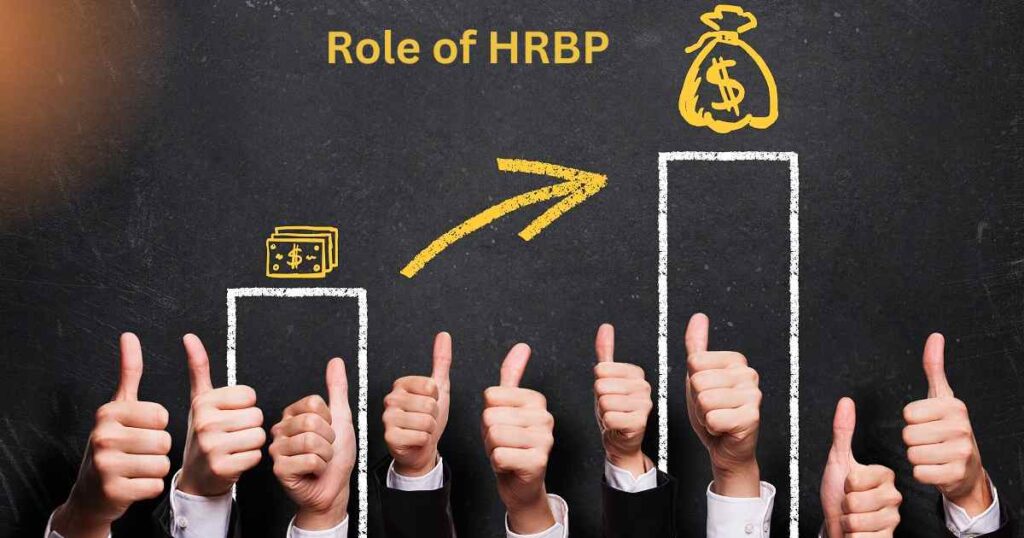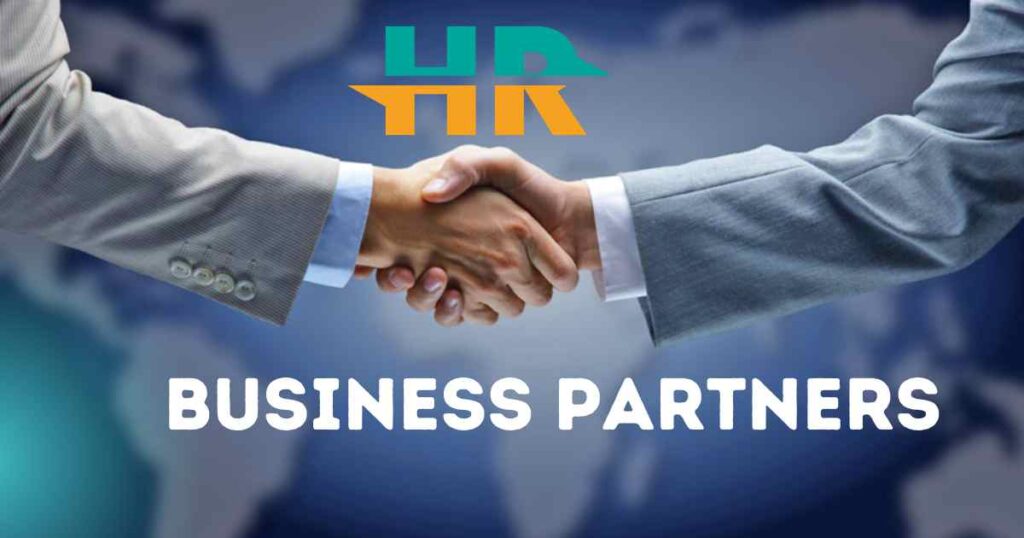Consider becoming an HR business partner if you’re searching for a job that combines human resources and business planning. (HRBP). In the world of HR, HRBPs are akin to Swiss Army knives because they are capable of handling any problem, from attracting and keeping talent to coordinating corporate objectives and culture. But how does an HRBP vary from other HR roles and what precisely does one do?
To help you determine if this is the correct route for you, we’ll address these and other questions in this blog post. Or perhaps you simply want to know what your HRBP does all day. Read on for more information about this fascinating and vibrant career.
What Is an HR Business Partner (HRBP)?
If you think that HR stands for Human Resources, you are only half right. It also stands for Human Relations, because that’s what HR professionals do: they relate to humans. And not just any humans, but the humans who work for a business. And not just any business, but the business that pays them to relate to humans.
But sometimes, relating to humans is not enough. Sometimes, you need to partner with them. That’s where HRBP comes in. HRBP stands for Human Resources Business Partner. An HRBP is like a super-HR who works closely with the senior leaders of a business to make sure that their human resources are aligned with their business goals.
An HRBP is not just an employee of the HR department. They are also an employee of the business unit they partner with. They understand the finances, objectives, competition, market trends and culture of that unit. They use their knowledge and skills to advise and support managers on strategic issues and help them implement high-performing, integrated HR practices.
HRBP is like a bridge between HR and the business. They speak both languages fluently and can translate between them effectively. They are also like a glue that holds them together and prevents them from falling apart.
HR Business Partner is also like a magician who can pull rabbits out of hats when it comes to people management. They can find talent, develop talent, retain talent and motivate talent. They can solve problems, prevent conflicts, resolve disputes and foster collaboration. They can create policies, design programs, measure outcomes and improve processes.
An HRBP is all these things and more. They are an essential part of any successful organization that values its human capital as much as its financial capital.
But don’t take my word for it. Ask any HRBP yourself and they will tell you how awesome their job is. Just don’t ask them on a Monday morning when they have to deal with payroll issues.
The Role of HR Business Partners

If you’re looking for a well-curated content for this subheading – The Role of HR Business Partners, you’ve come to the right place. In this paragraph, we’ll explain what an HRBP is, what they do, and why they’re so awesome. Ready? Let’s go!
An HRBP (Human Resources Business Partner) is not your typical HR person who deals with employee complaints and payroll issues. No, an HRBP is a strategic partner who works closely with senior leaders to align people management with business goals. An HRBP understands the big picture of the organization and its challenges and helps design and implement solutions that foster a high-performing culture.
HRBP uses an HRMS (Human Resource Management System) to track and analyze data on employee performance, engagement, retention, and development. An HRMS is a software that automates and simplifies various HR processes, such as recruitment, training, compensation, benefits, etc. An HRMS helps an HRBP make informed decisions based on facts and evidence.
The HRBP is a bridge between HR and other business units. They communicate effectively with different stakeholders and understand their needs and expectations. They also advocate for employees’ interests and well-being. They are not afraid to challenge the status quo and propose innovative ideas that can improve the organization’s effectiveness.
It is a superhero who wears many hats: consultant, coach, analyst, mediator, change agent…you name it! An HRBP is always ready to tackle any challenge that comes their way with professionalism and enthusiasm. HRBP is someone you want on your team if you want to achieve success in today’s competitive market!
HR business partner role and responsibilities
If you’re looking for a job that combines human resources and business strategy, you might want to consider becoming an HR business partner (HRBP). An HRBP is not just a glorified recruiter or a payroll processor. They are strategic partners who work closely with senior leaders and managers to align HR policies and practices with the organization’s goals and objectives. They also act as advocates for employees, ensuring that they have the resources, support and opportunities they need to thrive.
As an HRBP, you will have a variety of responsibilities that may vary depending on the size and nature of your organization. Some of these may include:
- Developing and implementing talent management strategies, such as succession planning, performance management, learning and development, diversity and inclusion, etc.
- Providing coaching and guidance to managers on how to handle employee relations issues, such as conflict resolution, disciplinary actions, grievances, etc.
- Analyzing data and metrics to identify trends and gaps in HR processes and outcomes, such as employee engagement, retention, turnover, productivity, etc.
- Recommending and facilitating changes to improve HR effectiveness and efficiency.
- Collaborating with other HR functions (such as recruitment, compensation and benefits) to ensure alignment and integration of HR services.
- Evaluating the impact of HR initiatives on business results
- Staying updated on best practices and legal regulations in HR.
To be successful as an HRBP, you will need a combination of skills and competencies that go beyond your typical HR knowledge. Some of these may include:
- Business acumen: You need to understand how your organization operates and what drives its success. You also need to be able to communicate effectively with senior leaders and managers using their language.
- Relationship building: You need to establish trust and credibility with your stakeholders across all levels of the organization. You also need to be able to influence others without authority.
- Problem solving: You need to be able to analyze complex situations from multiple perspectives and come up with creative solutions that balance the needs of both the business and the employees.
- Agility: You need to be able to adapt quickly to changing priorities and demands in a fast-paced environment. You also need to be open-minded and willing to learn new things
Being an HRBP is not an easy job. It requires a lot of hard work, dedication, and passion for people. But it can also be very rewarding if you enjoy making a difference in your organization’s culture, performance, & success.
HR Business Partners in Everyday HR
If you think HR is all about hiring, firing, and payroll, think again. There is a special breed of HR professionals who are more than just paper pushers. They are HR Business Partners (HRBPs), and they are the secret sauce of successful organizations. HRBPs are like ninjas who infiltrate different business units and help them achieve their goals through people initiatives . They are not only experts in human resources, but also in business strategy, finance, market trends, and company culture.
They can speak the language of managers, employees, customers, and stakeholders alike. They can also use advanced tools like HRMS (Human Resource Management System) to streamline processes and optimize performance. HRBPs are the ultimate multitaskers who can juggle multiple projects and priorities without breaking a sweat.
Considering that routine work still consumes an astounding 42% of HR teams’ time. It’s time to give HR business partners a real chance to lead the organization in their new capacity as influential powers.
They are also great communicators who can deliver bad news with empathy, good news with enthusiasm, and feedback with honesty. HRBPs are not just partners in name, but in action. They are the glue that holds the organization together and the catalyst that drives it forward.
Conclusion
If you’ve made it this far, congratulations! You’ve learned a lot about HR business partners (HRBPs) and how they can help your organization achieve its goals. You’ve also learned about the benefits of using an HRMS to support your HRBPs and streamline your HR processes. But don’t stop here. There’s always more to learn and improve in the world of HR.
So keep reading our blog for more tips, insights and best practices on how to become a better HR leader and business partner. And remember: HRBPs are not just glorified recruiters or paper pushers. They are strategic partners who can make a difference in your company’s performance and culture. So treat them well, empower them with the right tools and data, and watch them work their magic!

